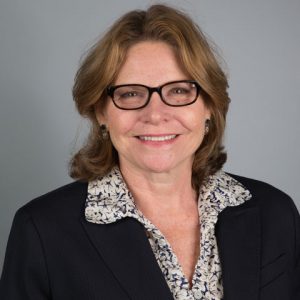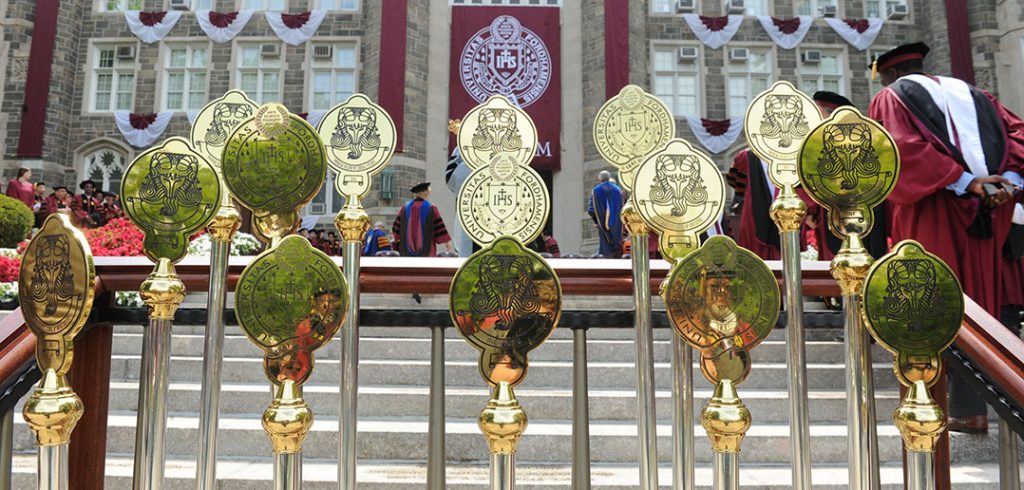
When Stephen Freedman died suddenly in July, he left behind a profound legacy as Fordham’s first provost. Finding someone to succeed him will be a significant task.
Virginia Roach, Ed.D., dean of Fordham’s Graduate School of Education, said the University hopes to honor Freedman’s memory by finding a replacement who can build on his initiatives and chart an ambitious path forward for the University.
Just as Fordham was vastly different when Freedman joined Fordham in 2007 than it is today, so too has the job changed. Roach, who is chairing the committee tasked with searching for a replacement, said that expanding on some of the innovative programs that Freedman spearheaded will be key, but otherwise, the committee is keeping a very open mind as to what sort of candidate could serve Fordham well in an evolving higher-education landscape.
A Search Unencumbered by Borders
Taking its cue from Joseph M. McShane, S.J., president of Fordham, the committee is also very open to input from the Fordham community and beyond, Roach said.
“When Father McShane asked me to chair the search committee, he was adamant that his goal was to have the best provost for Fordham that we can find, even if it’s someone outside of the country if there’s an appropriate match,” she said.
“He certainly has no preconceived notion of who’s going to come, or what they look like, or what background they have. He’s very reliant on the committee to help shape that and to bring forward really strong candidates.”
The process of hiring the University’s new provost—its chief academic officer—kicked off this month on several fronts. A job listing was posted on the University’s website, and the search firm Witt Kieffer was enlisted to recruit potential candidates.
At the same time, a 13-member search committee, chosen by Father McShane after consultations with the Faculty Senate, has begun to solicit feedback from the Fordham community. Roach said the goal of the outreach is to help it settle on parameters to winnow the list of candidates down to a list of semifinalists and finalists. The due date for applications is October 29.
Unvarnished Opinions Welcome
In addition to public forums, the committee has also set up an email account for feedback. The account, FordhamProvost@wittkieffer.com, is overseen by the Witt Kieffer, and feedback is passed along anonymously to the committee. That measure of protection is meant to ensure that the committee gets unvarnished, honest feedback.
“Many people in these forums have given us really great feedback and input, but some people feel more comfortable providing feedback anonymously. We want people to feel like they can say whatever they want to say regarding the search, the email address provides that opportunity,” Roach said.
When it comes to the future provosts’ qualifications, Roach said several aspects of the job are particularly relevant. International endeavors, such as the partnership that Freedman established with the University of Pretoria, will continue to be important, as will exploration of new learning modalities such as online learning. Maintaining Fordham’s reputation as a nationally recognized center for research is key as well.
A One-of-a-Kind Opportunity
Finally, there is the University’s unique tripartite identity.
“Anyone who comes here should know what it means to be a Catholic university, what it means to be a Jesuit university, and what it means to be a university in New York City,” Roach said.
Ultimately, no less than a visionary leader will suffice for the job, she said. The University has an aggressive timetable laid out: the new provost is expected to be announced in January, and to start in September, 2019.
“The reality is, no institution of higher education can stand still. We always have to think about what the challenges are today and tomorrow, and what the profile of a learner is in 2018 and into the future. There are very different ways people acquire information, and very different ways in which people are integrated into the community. All of that is something a provost has to think about, as well as the larger issues, both here in the United States and around the world,” she said.
“We want to hear from the community, and we desperately need people to be aggressive in talking to others they know in the field to encourage recommendations for ideal candidates our search firm can pursue. We’re a complex, sophisticated, nationally ranked institution. I think it’s an attractive challenge.”

